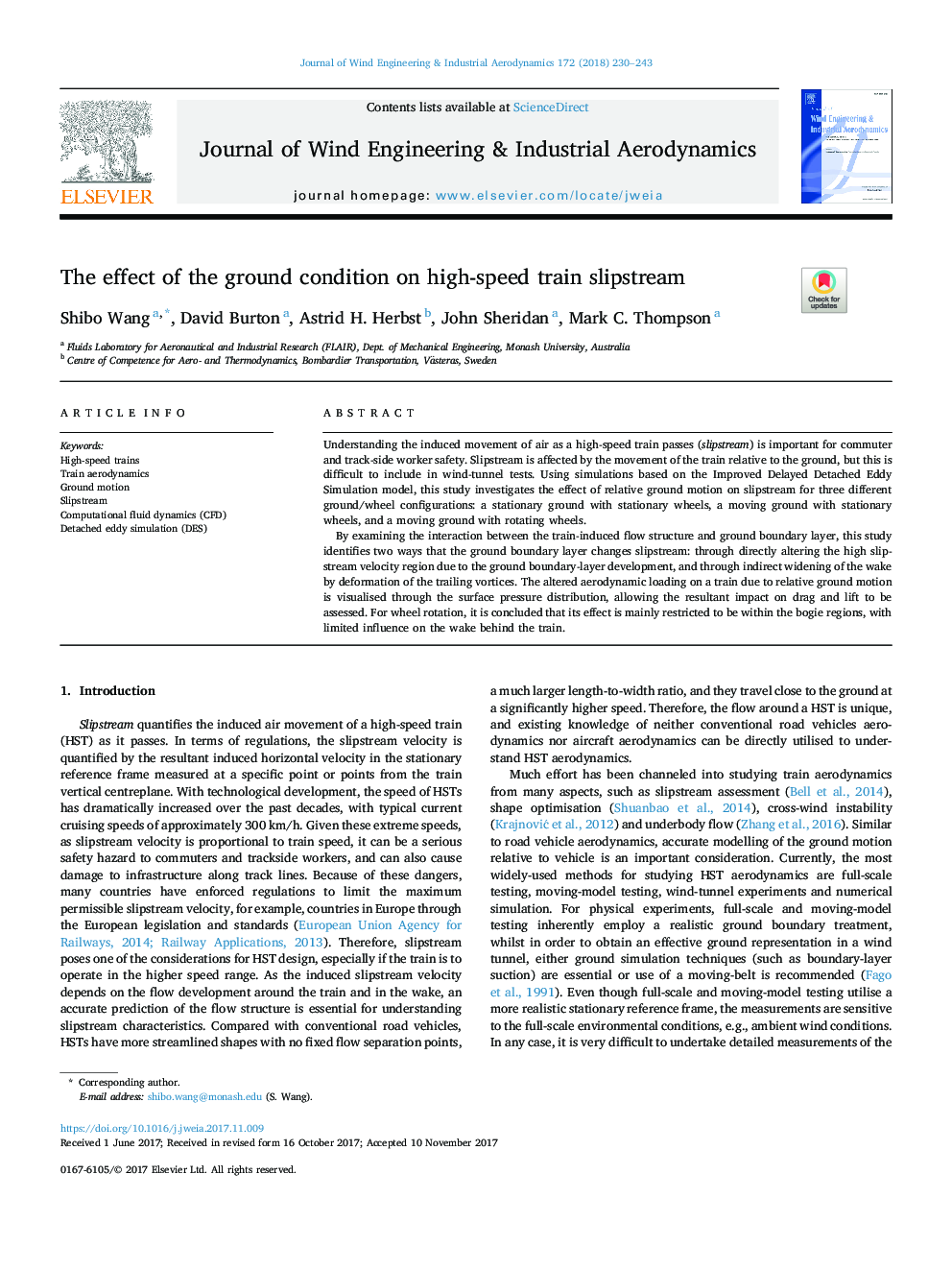| Article ID | Journal | Published Year | Pages | File Type |
|---|---|---|---|---|
| 6757217 | Journal of Wind Engineering and Industrial Aerodynamics | 2018 | 14 Pages |
Abstract
By examining the interaction between the train-induced flow structure and ground boundary layer, this study identifies two ways that the ground boundary layer changes slipstream: through directly altering the high slipstream velocity region due to the ground boundary-layer development, and through indirect widening of the wake by deformation of the trailing vortices. The altered aerodynamic loading on a train due to relative ground motion is visualised through the surface pressure distribution, allowing the resultant impact on drag and lift to be assessed. For wheel rotation, it is concluded that its effect is mainly restricted to be within the bogie regions, with limited influence on the wake behind the train.
Keywords
Related Topics
Physical Sciences and Engineering
Energy
Renewable Energy, Sustainability and the Environment
Authors
Shibo Wang, David Burton, Astrid H. Herbst, John Sheridan, Mark C. Thompson,
